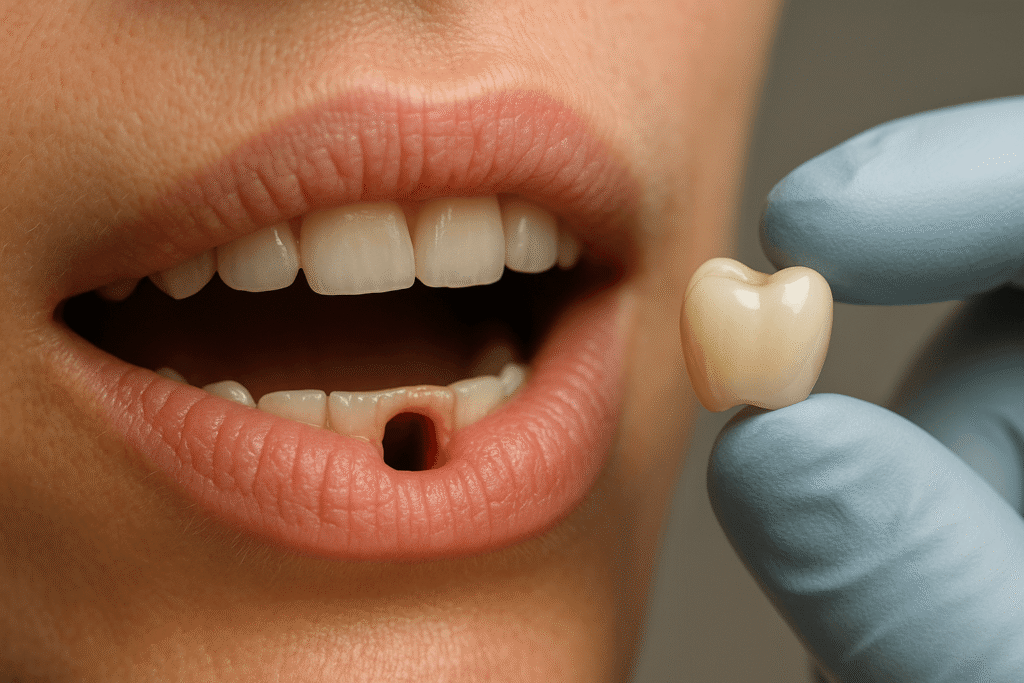
If you’re dealing with toothaches, especially when it involves your wisdom teeth, it can be a serious problem. Wisdom teeth can sometimes indicate a larger issue, and pain from them can involve serious concerns. You should definitely visit a dentist if the pain is affecting your daily life, as relieving that pain is key.
Dental professionals, like an emergency dentist, can help with immediate relief. Don’t hesitate to call for an appointment, especially if the pain won’t go away. Wisdom teeth emerge late in life, but that doesn’t mean you should wait for problems to become serious before seeking help.
Understanding Wisdom Teeth
Most people get their first two sets of molars in their mid-teens, but the third set, also known as wisdom teeth, typically emerges later, sometimes in your twenties. While some are lucky enough to have a full set of wisdom teeth, others may have fewer or none at all. In certain cases, these teeth can benefit you if there’s proper alignment and enough room in the mouth. Unfortunately, when they grow in crooked or at the wrong angles, they can cause significant problems, affecting a person’s comfort and oral health.
When to Seek Help for Wisdom Teeth Pain
When you’re dealing with wisdom teeth pain, it’s always best to follow the advice of dental health professionals. If the pain doesn’t go away or feels more than just typical tooth growth discomfort, you should consult a dentist right away. Sometimes, the pain could be a sign of cavities or an infection, and waiting it out might just make things worse.
If the pain persists, don’t hesitate to schedule an emergency dental appointment or see an oral and maxillofacial surgeon. A professional can help determine the cause of the pain during your examination and decide if extraction is necessary. Wisdom teeth that are incorrectly positioned or affecting neighbouring teeth may need to be extracted as a prevention to avoid further complications once they are fully grown.
How to Ease Wisdom Teeth Pain
If you have to wait a few days before seeing your dentist or maxillofacial surgeon, here are a few tips to relieve the pain until your emergency appointment. You can try using a cold compress or taking pain relievers to help manage the discomfort while you schedule your visit.
1. Salt Water Rinse for Temporary Relief
A simple and effective way to relieve wisdom teeth pain temporarily is by rinsing your mouth with salt water. Just mix 1 teaspoon of salt with lukewarm water and rinse for 30–60 seconds. Repeat as needed throughout the day to help ease discomfort.
2. Cloves: Natural Relief for Toothaches
Using cloves is a time-tested, old wives’ remedy for toothaches. You can place a full clove onto the affected area or dab some clove oil on a cotton swab and gently apply it to the painful area. In just a few minutes, you’ll start to feel some pain relief.
3. Cold Compress for Pain Relief
Applying a cold compress to the outside of your cheek can help reduce swelling and numb the pain. Simply wrap some ice in a cloth and hold it against the affected area for about 15–20 minutes at a time. This can provide quick, temporary pain relief while you wait for your appointment.
4. Using Ibuprofen or Anti-inflammatory Medications
If the pain from your wisdom teeth is severe, you can take ibuprofen or another anti-inflammatory medication for temporary relief. Just make sure to closely follow the packaging instructions and don’t exceed the recommended dose to avoid any side effects.
Why People Visit an Emergency Dentist
Sometimes, patients experience acute pain from serious oral issues that just can’t wait. That’s when they turn to dentists offering emergency care. These dentists often have additional years of study and training to handle urgent cases, so they’re ready to relieve your pain. Their office stays open at any time of the day or week, and you don’t even need to worry about calling ahead if you’re in need.
Infection Treatment for Wisdom Teeth Pain
Wisdom teeth can erupt and leave an individual susceptible to infection. Particles of food can get trapped under the gums, causing intense pain and discomfort that may require intervention. If you’re suffering, it’s best to see a general dentist or emergency dentist to examine the emerging wisdom teeth and remove any infection to offer relief.
Addressing Swelling and Inflammation
Sometimes, wisdom teeth can cause swelling and inflammation around the gums, making the pain even worse. Applying a cold compress on the affected area can help reduce swelling and numb the pain temporarily. It’s a quick remedy while you wait to see your dentist, and it can bring much-needed relief, especially if you’re struggling to manage the discomfort before your appointment.
Dealing with a Crowded Mouth
A dentist should confirm whether there’s enough room for your wisdom teeth to come in. If patients neglect their wellness appointments, they may not realize there’s no space for their molars to break through. In a crowded mouth, this can lead to problems with existing teeth, and an emergency dentist can evaluate the situation and adjust your teeth to accommodate the wisdom teeth.
When Surgery Might Be Recommended
In cases of extreme wisdom teeth pain, removal might be the right option. An emergency dentist will evaluate your needs and determine the appropriate next steps. They may refer you to an oral surgeon with the proper knowledge and training to perform the procedure. After surgery, the dentist will also examine and treat any post-surgery complications or symptoms.
Conclusion
If you’re experiencing wisdom teeth pain, it’s important to listen to your body and seek help when needed. While some discomfort is normal as these teeth emerge, intense or persistent pain could be a sign of a more serious issue, like an infection or misalignment. Whether it’s using simple remedies like a salt water rinse or seeing an emergency dentist for immediate relief, don’t hesitate to take action.
Dental professionals are equipped to handle everything from swelling to extraction if necessary. By addressing the pain early, you can prevent more serious complications and ensure your oral health stays on track.



